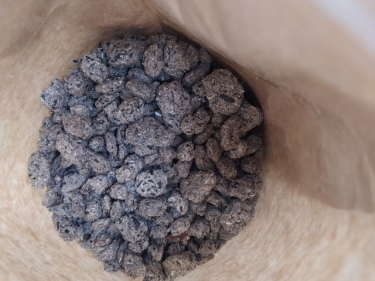Couldn't find the product you want?
Fill out this form to request the product.
Export from Poland
Poland has a high-income economy which is considered to be one of the best developed of the post-Communist countries and is one of the fastest growing within the EU. Having a strong domestic market, low private debt, flexible currency, and not being dependent on a single export sector, Poland is the only European economy to have avoided the late 2000s recession.
Poland's top exports include machinery, furniture, food, motor boats, light planes, hardwood products, casual clothing, shoes and cosmetics. Germany is by far the biggest importer of Poland's exports. Other trade partners include United Kingdom, France, Czech Republic, Russia, Italy, Netherlands, Sweden, United States, Ukraine.
Poland has a large number of private farms in its agricultural sector, with the potential to become a leading producer of food in the European Union. The largest exports of Poland include smoked and fresh fish, fine chocolate, and dairy products, meats and specialty breads, with the exchange rate conducive to export growth.
Poland is a net exporter of food, processed fruit and vegetables, meat, and dairy products. Processors often rely on imports to supplement domestic supplies of wheat, feed grains, vegetable oil, and protein meals, which are generally insufficient to meet domestic demand. However, Poland is the leading EU producer of potatoes and rye and is one of the world's largest producers of sugar beets and triticale. Poland also is a significant producer of rapeseed, grains, hogs, and cattle. Poland is the largest producer and exporter of apples in the entire world, surpassing China.
Import to Poland
The economy of Poland is the largest economy in Central Europe, sixth-largest in the EU and the largest among the ex-communist members of the European Union. Before the late-2000s recession its economy grew a yearly growth rate of over 6.0%.
Poland is a founding member of the World Trade Organization. As a member of the European Union, it applies the common external tariff to goods from other countries including the United States. Major Poland's imports are capital goods needed for industrial retooling and for manufacturing inputs.
Commodities produced in Poland include electronics, cars (Arrinera, Leopard), buses (Solaris, Solbus), helicopters, transport equipment, locomotives, planes (PZL Mielec), ships, military engineering (including tanks, SPAAG systems), medicines (Polpharma, Polfa), food, clothes, glass, pottery, chemical products and others.
Most Polish imports are not for direct consumer consumption, but capital goods needed for manufacturing and industrial retooling. Poland imports machinery and transport equipment, cars, computers, intermediate manufactured goods, chemicals, minerals, fuels, lubricants and related materials and also miscellaneous manufactured articles.
Major import partners of Poland are European Union members (Germany, Italy, France), Russia and China.
The word cereal derives from Ceres, the name of the Roman goddess of harvest and agriculture. The first cereal grains were domesticated by early primitive humans. About 8,000 years ago, they were domesticated by ancient farming communities in the Fertile Crescent region.
Wholegrain cereals are a rich source of many essential vitamins, minerals and phytochemicals. Cereals and wholegrain foods can reduce the risk of developing certain diseases including coronary heart disease, colon cancer, diabetes and diverticular disease. Common cereal foods include bread, breakfast cereals and pasta. The two main types of commercial grain crops are cereals such as wheat and rye, and legumes such as beans and soybeans.
Grains include wheat, barley, oat, rye, corn, rice, millet and triticale. Wholegrains include wholemeal or wholegrain breads or crispbreads, dark 'seedy' breads, wholegrain breakfast cereals, wheatgerm, brown rice, puffed whole grains, bulgur, quinoa, couscous, popcorn and oatmeal. Export Portal offers you all types of grains, wholegrains and cereals to buy or sell in any country!
Grain legumes or pulses are members of the pea family and include lentil, chickpeas, common beans, common peas, fava beans, lima beans, lupins, mung beans, peanuts, pigeon peas, runner beans and soybeans. All of them are very nutritious and have numerous health benefits.
There are also oilseeds - these are grains grown primarily for the extraction of their edible oil. Vegetable oils provide dietary energy and some essential fatty acids. They can be used as fuel or lubricants.
You have to keep in mind that cereal grains are now divided into 2 subgroups:
- Whole Grains
- Refined Grains
Whole grains contain the entire grain kernel - the bran, germ, and endosperm. Examples of whole grains include whole-wheat flour, bulgur (cracked wheat), oatmeal, whole cornmeal, and brown rice. Refined grains have been milled, a process that removes the bran and germ. This is done to give grains a finer texture and improve their shelf life, but it also removes dietary fiber, iron, and many B vitamins. Some examples of refined grain products are white flour, de-germed cornmeal, white bread, and white rice.
When grains are refined, the bran and germ layers are generally removed, leaving only the endosperm. This process can cause significant losses of fibre, vitamins, minerals, antioxidants and phytochemicals from the grains. Some fibre, vitamins and minerals may be added back into refined cereal products (such as white bread), which compensates for losses, but it is impossible to add the mix of phytochemicals that is lost in the processing.
Find cereals for sale and wholegrain foods at Export Portal, look for grain trading suppliers and rice exporters here to find the best prices on agri-good products!
